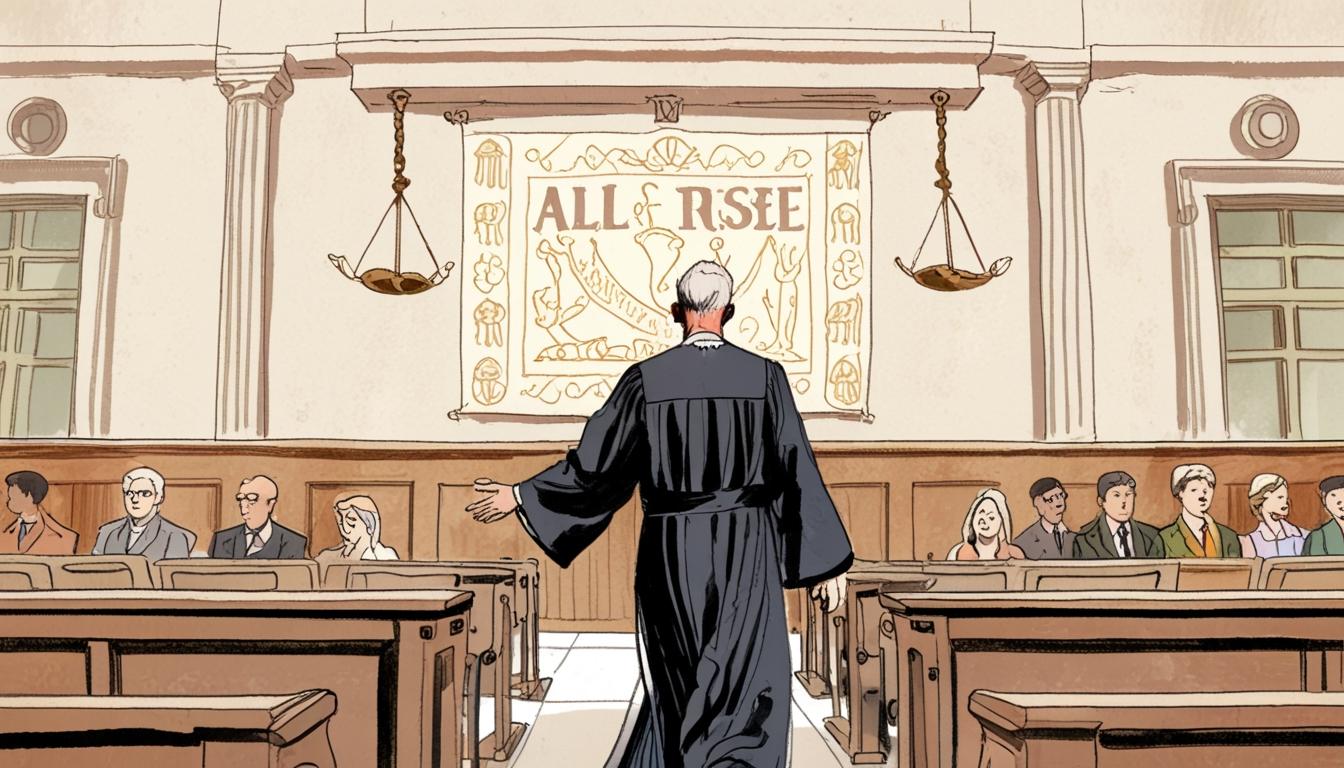A longstanding tradition in English courtrooms, marked by the call of “all rise” as a judge enters, is set to undergo a significant transformation. In a move aimed at promoting inclusivity within the judicial system, all courts in England and Wales will soon adopt the phrase “all rise, if able.” This change is intended to enhance accessibility for defendants, witnesses, and legal representatives who may have disabilities.
The initiative to update this age-old custom, which reportedly dates back around 1,000 years to the time when judges were seen as embodiments of royal authority, comes from the HM Courts and Tribunals Service (HMCTS). According to internal communications shared last month, the updated phrase will now be standard practice in courtrooms regardless of whether any individuals with disabilities are present. The objective is to create a more welcoming environment for all court attendees, particularly those facing challenges due to physical disabilities.
“Creating a welcoming environment for all those who attend court hearings is essential,” an HMCTS memo stated. Additionally, it emphasized the necessity of making reasonable adjustments to the traditional practices of the court system to support inclusion. The reference to this shift is already incorporated within the Equal Treatment Bench Book, which serves as a guide for court officials, judges, and magistrates, advocating increased awareness and understanding of diverse circumstances encountered in courtrooms.
While the change has been welcomed by some, it has also provoked criticism from traditionalists who view it as unnecessary. Tory MP Jack Rankin expressed his concerns in an interview with The Telegraph, stating, “Changing a legal convention which dates back to medieval times to be supposedly more inclusive is totally unnecessary virtue-signalling.” He further articulated that the time invested in implementing this change might be more effectively allocated toward addressing the existing judicial backlog.
Similarly, Richard Tice, the deputy leader of the Reform party, characterized the alteration as “another tradition trashed to the god of wokery,” calling it a “ludicrous waste of time and energy.” Critics argue that the previous tradition had not obligated disabled individuals to stand, raising questions about the necessity of altering a practice that has symbolised respect within the judicial system for centuries.
The introduction of this change emerged from pilot initiatives at the Royal Courts of Justice, where it was reportedly met with positive feedback from court users. Following its initial rollout, plans to implement the revised phrasing across all courts received endorsement from the nation’s most senior judicial figures, including the Lady Chief Justice and the Judicial Executive Board, signalling institutional support for the initiative.
This modification constitutes one of the few alterations to a courtroom tradition this enduring, reflecting broader societal shifts towards inclusivity and the recognition of diverse user needs within legal frameworks. As this transition takes place, it remains to be seen how it will influence courtroom dynamics and perceptions of respect in the legal process.
Source: Noah Wire Services
